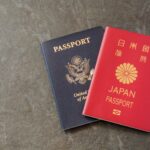Japan Tattoo Laws

Japan Tattoo Laws
The Intricacies of Japan’s Tattoo Laws
Understanding Japan’s cultural complexity can be a fascinating endeavor. Few topics illustrate this intricacy as much as the topic of tattoos in Japan. While there isn’t any explicit law stating that tattoos are illegal, there are many complications and misunderstandings about tattoos’ legal and social status. This blog aims to unravel these complexities, looking at the history, the social perception, and the peculiar circumstances that often lead people to believe there are “Japan Tattoo Laws.”
Tattoos in Japan’s History
To comprehend the current state of tattoos in Japan, we must dive into its history. Tattoos, or “irezumi” in Japanese, have a long history dating back to the Jomon Period (around 10,500 B.C. to 300 B.C.). During this period, tattoos were often used for spiritual or decorative purposes. However, the perception of tattoos began to shift during the Edo period (1603-1868), when they were used as a form of punishment for criminals.
The Meiji government (1868-1912) subsequently banned tattoos entirely in an attempt to “modernize” Japan and give it a better image in the eyes of the West. This ban was only lifted after World War II, but the stigma around tattoos, linking them to criminal activity and the Yakuza (Japanese organized crime syndicates), persisted.
The Present Day “Nonexistent” Law
In today’s Japan, there is no specific law stating that having a tattoo is illegal. However, the societal perception of tattoos remains largely negative. Many places, such as public baths (onsen), gyms, swimming pools, and even some hotels, often ban individuals with visible tattoos from using their facilities. This is largely due to the aforementioned historical associations with criminal activities and an attempt to maintain a comfortable environment for all customers.
The misunderstanding of a so-called “Japan Tattoo Law” may stem from the legal situation around tattoo artists. In 2001, the Ministry of Health, Labour and Welfare in Japan argued that tattooing is a medical practice, as it involves inserting ink into the skin with needles. Therefore, it should only be done by licensed medical practitioners. This interpretation of existing laws has led to numerous legal disputes and has fostered confusion around the legality of tattoos themselves.
A Glimmer of Change?
Despite the prevailing stigma, the perception of tattoos in Japan is slowly but surely changing. With the increasing influence of Western culture and the growing popularity of tattoo art worldwide, more and more Japanese people, especially the younger generation, are getting tattoos.
The 2020 Tokyo Olympics (held in 2021 due to the COVID-19 pandemic) even sparked discussions about the potential need to relax restrictions on tattoos to accommodate international visitors. While there weren’t any major changes in law or policy, it shows a willingness to reconsider long-standing social norms.
Final Thoughts
In conclusion, the complexity of the “Japan Tattoo Law” is not so much a matter of legality as it is about deep-rooted cultural perception. While the landscape is shifting, the acceptance of tattoos in Japan still has a long way to go. This issue serves as a reminder of the ongoing tension between tradition and modernity, cultural preservation and globalization, and societal norms versus personal expression.
As with all cultural complexities, the key to understanding lies in respectful conversation, open-mindedness, and empathy. It will be interesting to see how Japan’s relationship with tattoos continues to evolve in the years to come.












